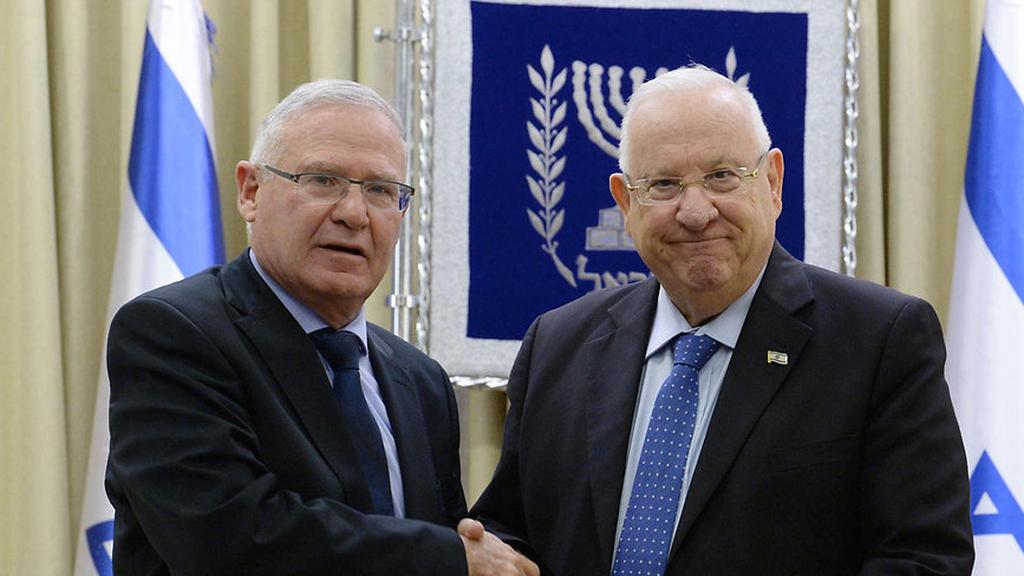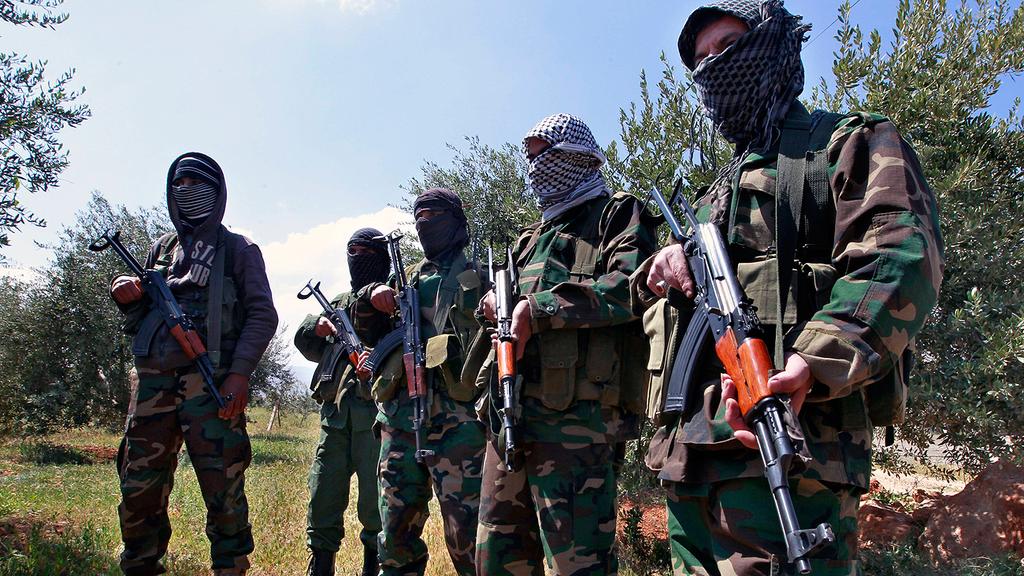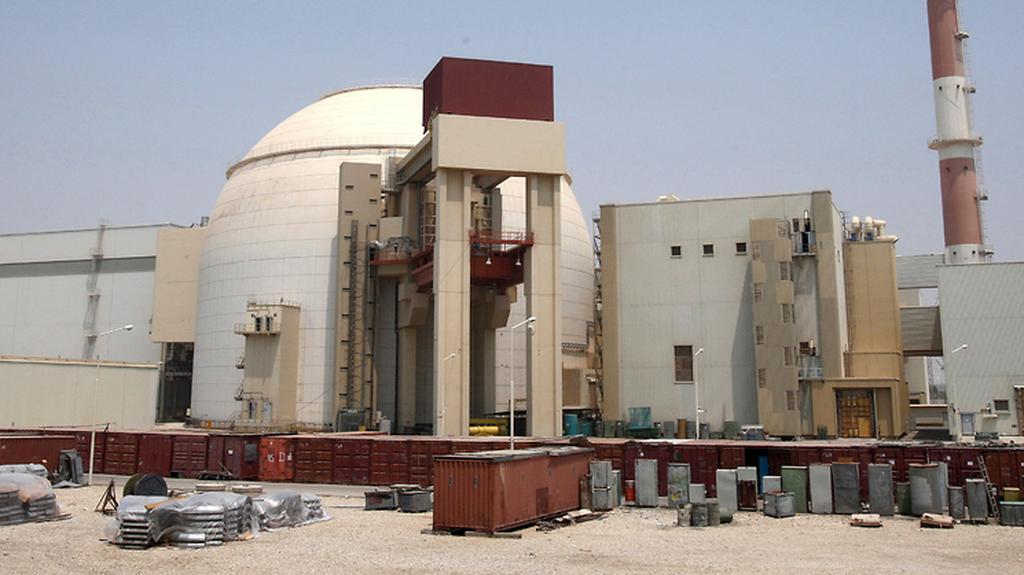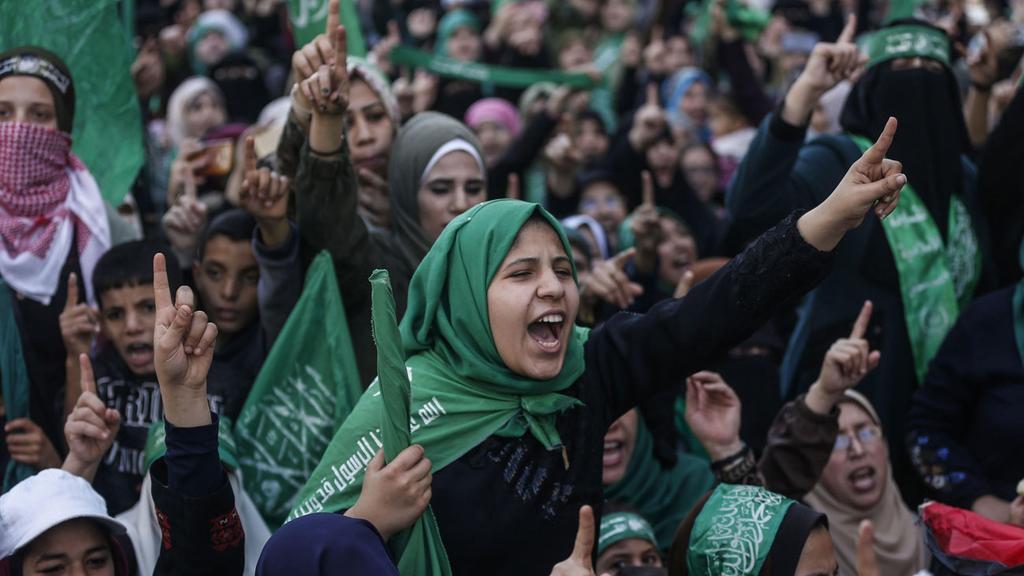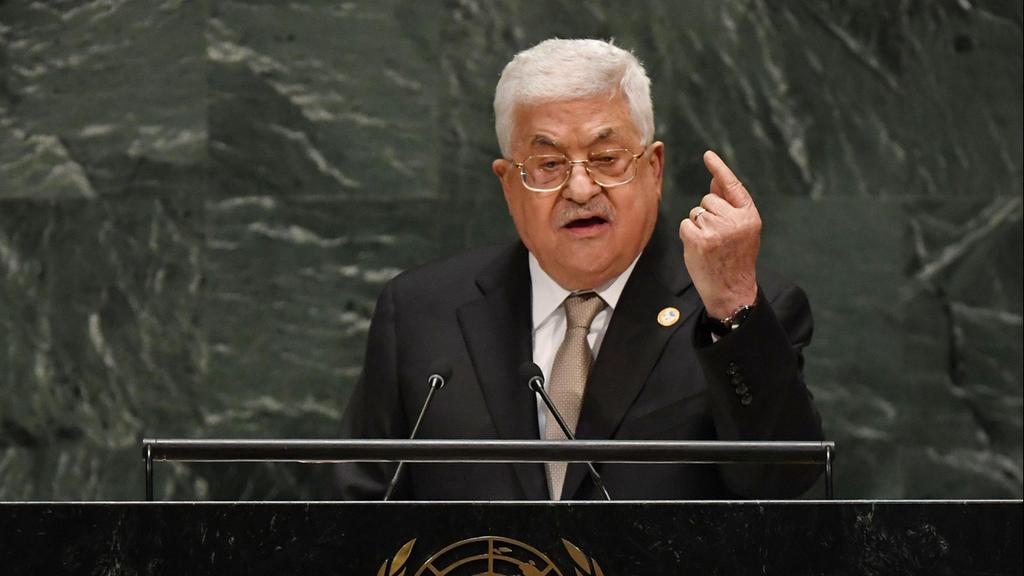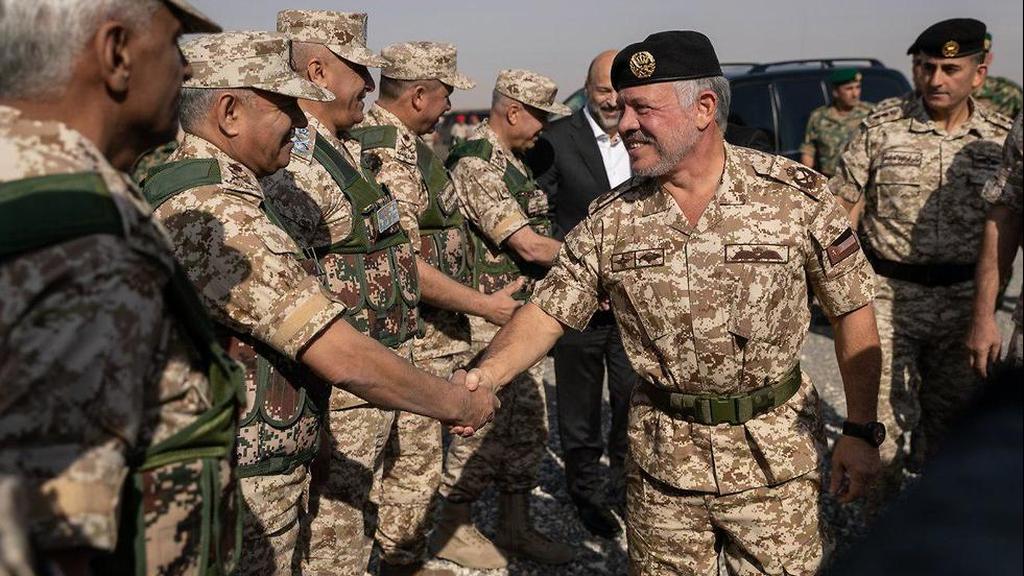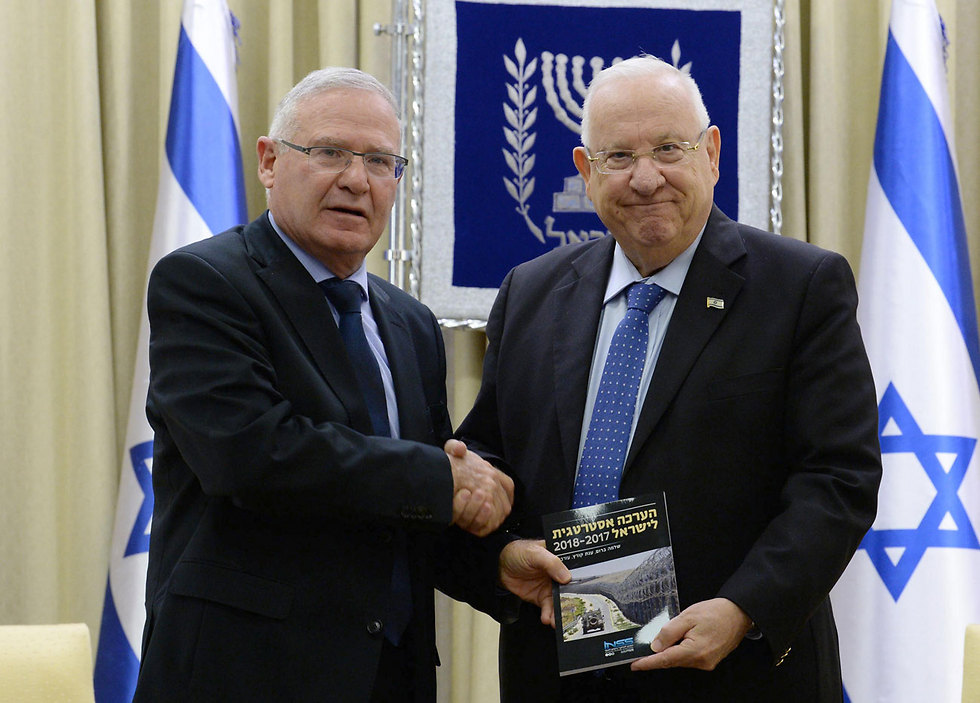The possibility of war in 2020 has risen, says a new report published this week by the Institute for National Security Studies, a think tank at Tel Aviv University.
At the center of this strategic assessment stands the tension between Israel's growing power and influence in the region, and the possibility of this current strength becoming fragile and temporary.
This tension stems from a list of factors that might lead in the coming year to a wide-scale conflict and even war in the region.
All of this due to Israel's conduct regarding several national security challenges: the growing tenacity and resolve of the Iranian regime, both in regards to its nuclear capabilities and its efforts to increase its foothold in Syria and other areas in order to operate against Israel; Hezbollah's efforts to achieve precision weapons; and Hamas' efforts to calm tensions in the Gaza Strip and influence the terms of its developing agreement with Israel.
These factors are happening while Israel is in the middle of an ongoing political crisis that has paralyzed its government for more than a year.
Soleimani's death – potential for strategic change
The presentation of the report to President Reuven Rivlin earlier this week took place in the shadow of Iranian general Qassem Soleimani's assassination by the U.S., an event that the institute's analysts say gives weight to a possible escalation in the region and the need for a new Israeli strategy.
9 View gallery
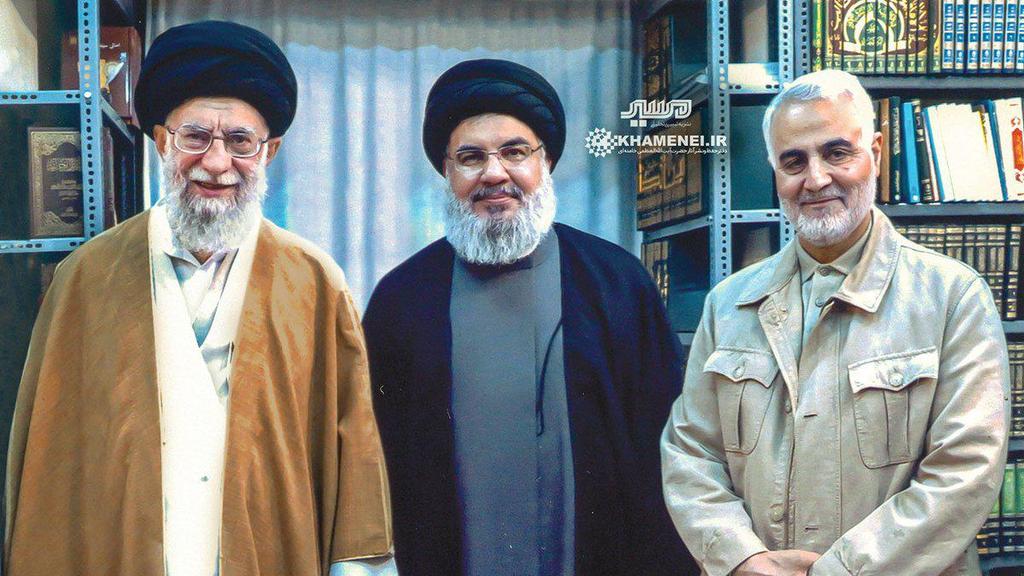

L-R: Supreme Leader of Iran Ali Khamenei, Hezbollah leader Hassan Nasrallah and assassinated Iranian general Qassem Soleimani
The general's death might lead to new potential in the strategic reality in the region whose size and influence is yet to be seen.
Iran and the United States may still be contemplating further moves, which exemplifies the uncertainty, lack of stability and volatility that already characterize the Middle East over the past decade.
These moves could lead to a variety of scenarios: an escalation leading all the way to a wide-scale conflict between the U.S. and Iran, which might well involve Israel; a continuation of the current state of affairs between the two nations of proxy battles and targeted strikes; or even the postponement of an Iranian reaction when the level of alertness of the U.S. and its allies is lowered.
A scale of threats
War in the North: According to the Institute, Israel's most critical threat in 2020 is the possibility of a war along its northern border region with the armed forces posted there: Iran; Hezbollah in Lebanon; the Syrian regime and pro-Iranian militias.
Israel's challenges along the northern border have increased in the past year, with the IDF having to prepare for a multi-front war as the leading scenario in the area.
Such an escalation, should it deteriorate into all-out war, could transpire in one of two primary scenarios.
1. A "Third Lebanon War" with Hezbollah, a conflict that would be far more ferocious and deadlier than its 2006 predecessor.
2. "The First Northern War" with Hezbollah in Lebanon, but also with forces in Syria and even Iraq, Iran or other factors in the region.
The risk of such an escalation demands that Israel conduct a thorough debate on the pros and cons of any effort to stall the enemy acquiring better conventional weapons (as opposed to efforts to obtain nuclear capabilities, which has broad opposition).
Israel must hold a comprehensive debate on the concept of a "counter strike" against Hezbollah and the correct timing of such an action. It must also consider alternatives, given the terror organization's latest efforts to better the accuracy of its rocket arsenal.
Iran's nuclear program: The urgency of this threat is still rather low in 2020, but its future potential severity is far higher.
Israel must prepare itself for the most extreme scenario, despite its low immediacy, of Iran achieving a breakthrough on its way to a nuclear bomb.
Israel must simultaneously plan for two more realistic scenarios: A renewal of negotiations on the Iran nuclear deal (a low possibility given Soleimani's death) and the start of the "slow crawl" towards the bomb.
Both scenarios require deep understanding and joint plans, including a military one, with the United States.
War in the South: A potential flare-up between Hamas and Israel remains high, despite the ongoing efforts to reach a long-term agreement for calm. In any event, the threat of an escalation along Israel's southern border is far lower than in the north.
If Israel and Hamas do not implement an agreement, the possibility of wide-scale military confrontation in the Gaza Strip rises - a confrontation for which neither side has any real desire.
If such a battle occurs, Israel must be quick and maneuverable, focusing on the Hamas military wing, destroying the entire organization and conquering the enclave – and ultimately ending the flareup with diplomatic mediation resulting in a strong position for Israel.
2020 challenges
The Palestinians: The institute again urges the government to attempt to restart the peace negotiations. If this fails, steps must be taken to preserve the country's image as a Jewish, democratic, safe and moral nation.
Preparations for the day after Palestinian President Mahmoud Abbas steps down are necessary, so is the continued endorsement of economic development in the Palestinian Authority.
The institute sees great importance in the long-held publication of President Donald Trump's self-styled "Deal of the Century" Mideast peace proposal.
Such a plan will attempt to set new parameters for talks and recognize the new regional realities created in the past 50 years.
The assessment shows that a lack of new strategic planning regarding the Palestinians is detrimental to Israel and could lead to an escalation in the West Bank and the Gaza Strip.
U.S. presidential elections: America will go to the polls this year.
The institute recommends that Israel emphasize that it has no wish for the U.S. to fight or spill blood on its behalf. Israel is a strategic asset and a trusted ally for America, therefore increasing its own military and diplomatic capabilities are the best course of action.
Israel must do all it can to return to being a consensus issue for both parties. It must also make a renewed effort to bring back the American Jewish public into the fold, a community that has lately distanced itself over the monopoly of Orthodox Judaism over Israeli Jewish life.
Sunni rapprochement: Israel must shatter the glass ceiling of cooperation with the pragmatic Sunni regimes in the Middle East.
The two key efforts for such a breakthrough are the marketing of its technological, economic and defense capabilities, which could assist these nations in their fight against Iran and to cope with economic and innovative challenges they face in the 21st century, and significant advancement of the Palestinian issue - giving these nations cover to increase their ties with Israel.
9 View gallery
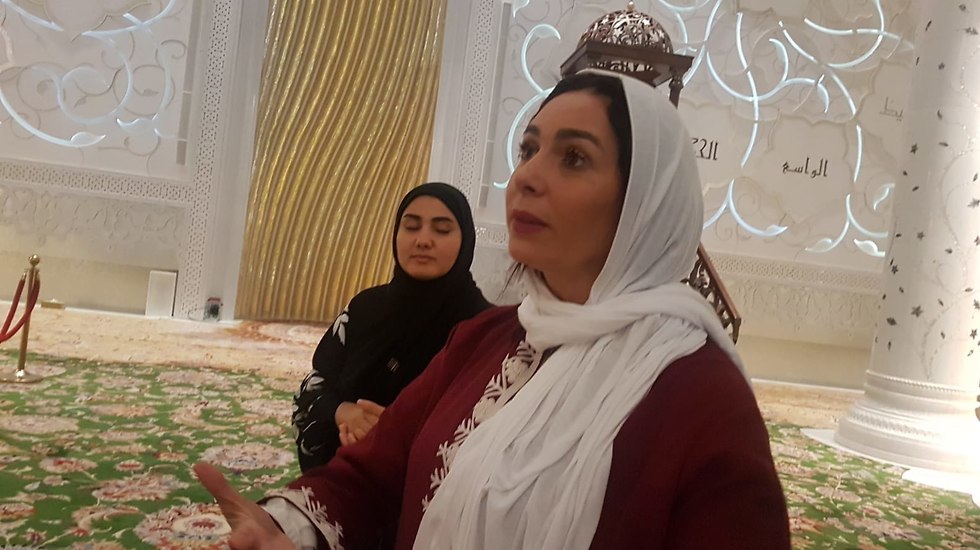

Culture Minister Miri Regev at the Sheikh Zayed Grand Mosque in Abu Dhabi, Oct. 2018
(צילום: חן קדם מקטובי)
Jordan: The rebuilding of relationship between Israel in Jordan is a critical effort the institute believes must be taken.
Here too the "Fruits of Peace" (water, defense, gas, and joint projects) can play a role in reaching a settlement with the Palestinians, and are key to ending one of the lowest periods bilateral ties since the 1994 peace treaty.
Defense spending: Considering the increasing Iranian boldness and its continued presence in Syria, Iraq and Lebanon, the IDF must increase its levels of preparedness on all fronts: Iran, Hezbollah, Syria, and the Palestinians.
A multi-year plan for the IDF must be implemented, including a foreign financial aid plan that has been on hold for the past two years, improve its striking capabilities against Iran, increase training, and work to implement strategic and operational plans suited to the current capabilities and action abilities developed by Iran, Hezbollah and Hamas.
"Israel's political stalemate could not come at the worst time," said Rivlin as he accepted the report from INSS Executive Director Amos Yadlin.
"Unfortunately, the central political players are aware of the current danger, but are refraining from working together and tto minimize the gaps between them."


